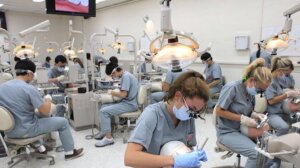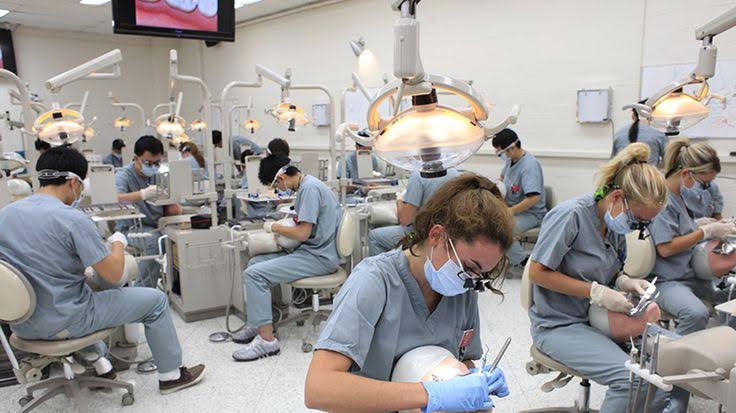When considering a career in medicine, your next step after completing an undergraduate degree is applying to medical school. With over 17 medical schools across Canada, you have options when it comes to selecting the right fit for your goals and interests. Choosing where to apply and ultimately attend is an important decision that will shape the course of your medical training and career.
This article provides an overview of 10 top medical schools in Canada. Reviewing the strengths of each institution can help guide you in researching schools and deciding where to apply on the path to becoming a physician. With a focus on facts and data around these 10 medical programs, you will gain valuable insights to inform one of the biggest academic decisions of your life.

Top 10 Medical Schools in Canada Ranked
Getting into medical school in Canada is highly competitive. With only a limited number of seats available each year across the country, prospective students need to excel academically and demonstrate well-rounded extracurricular activities. Here are the top 10 medical schools in Canada based on various ranking factors.
1. University of Toronto
As one of the most prestigious universities globally, the University of Toronto’s medical program consistently ranks at the top. Its rigorous curriculum, cutting-edge research opportunities, and renowned faculty attract the best and brightest students. Admission is extremely selective, with an acceptance rate under 5%.
2. McGill University
McGill’s Faculty of Medicine is renowned for its innovative problem-based learning approach and diverse student body. Located in Montreal, it provides a bilingual (English/French) education and emphasizes community engagement through outreach programs. Its hospitals and research centers are globally recognized.
3. University of British Columbia
UBC’s medical school boasts an integrated curriculum that emphasizes hands-on clinical experiences from day one. Its distributed model across British Columbia exposes students to diverse patient populations. Research excellence in areas like neuroscience and genomics further enhances its reputation.
4. McMaster University
As a pioneer of problem-based learning, McMaster’s medical program is renowned for its innovative teaching methods that prioritize critical thinking and self-directed learning. Small group sessions and early patient encounters characterize the program.
5. University of Alberta
The University of Alberta’s medical school excels in clinical skills training through its state-of-the-art facilities and teaching hospitals. Its rural/remote medicine stream prepares graduates for practicing in underserved areas. Strong research programs in areas like diabetes and virology add value.
6. University of Calgary
Recognized for its focus on leadership development and commitment to social accountability, the University of Calgary’s Cumming School of Medicine offers unique learning streams. These include options for students interested in rural medicine or research-intensive training.
7. Western University
Western’s Schulich School of Medicine & Dentistry provides extensive clinical exposure through partnerships with teaching hospitals across Southwestern Ontario. Its unique “scholar’s electives” allow students to pursue individualized scholarly projects.
8. University of Ottawa
The University of Ottawa’s Faculty of Medicine offers a bilingual (English/French) MD program known for its community-integrated approach. Students gain experience in rural/remote settings and underserved urban areas.
9. Queen’s University
Queen’s School of Medicine is highly regarded for its collegial learning environment that promotes collaboration and mentorship. Its unique “spiral” curriculum revisits key concepts with increasing complexity.
10. Université de Montréal
As one of Canada’s oldest medical schools, Université de Montréal offers French-language training in a vibrant multicultural setting. Its distributed model across Quebec exposes students to diverse clinical environments.
Choosing the right medical school is a crucial decision for aspiring physicians. Factors like program focus, teaching methods, research opportunities and location all play a role in finding the ideal fit. These top-ranked institutions provide excellent training to launch rewarding careers in medicine.
READ ALSO: Undergraduate Scholarships in Canada
Admission Requirements for Canadian Medical Schools
Gaining admission to a Canadian medical school is a highly competitive process. Prospective students must demonstrate exceptional academic performance, well-rounded extracurricular involvement, and a genuine passion for the medical field.
Academic Excellence
Academic excellence is the cornerstone of any successful medical school application. Canadian programs typically require a minimum overall GPA of 3.7 (on a 4.0 scale) or higher in undergraduate coursework. Competitive applicants often maintain GPAs above 3.8.
Beyond stellar grades, applicants must complete prerequisite courses in subjects like biology, chemistry, physics, and English. The specific requirements vary by school, so research each program thoroughly.
Standardized Test Scores
Strong scores on the Medical College Admission Test (MCAT) are essential. The MCAT assesses critical analysis, problem-solving, scientific knowledge, and reasoning skills. Canadian schools generally expect MCAT scores in the 90th percentile or higher.
Many applicants take the MCAT multiple times to achieve their desired score. Preparing thoroughly through practice tests and review courses is highly recommended.
Extracurricular Activities
While academics are paramount, Canadian medical schools also value well-rounded applicants with diverse experiences and leadership skills. Seek out meaningful extracurricular activities like:
- Clinical exposure (volunteering, shadowing, etc.)
- Research projects or publications
- Community service and outreach
- Sports, arts, or cultural pursuits
The key is to demonstrate commitment, initiative, and the ability to balance multiple responsibilities.
Personal Qualities
Beyond quantitative metrics, admissions committees evaluate personal qualities like empathy, resilience, communication skills, and ethical integrity. These attributes are assessed through personal statements, essays, interviews, and letters of recommendation.
Applicants should strive to showcase their unique stories, motivations for pursuing medicine, and ability to handle the rigors of medical training.
Early Assurance Programs
A select few Canadian universities offer “early assurance” or “conditional admission” programs that allow exceptional high school students to secure a future medical school spot. These highly competitive programs have stringent academic and non-academic requirements.
Applying to Canadian medical schools is undoubtedly challenging, but those who demonstrate dedication, passion, and a commitment to excellence can position themselves as strong candidates.
FAQs
What is the admission process like?
The medical school admission process in Canada is highly competitive. It typically involves submitting transcripts, MCAT scores, personal statements, letters of recommendation, and completing interviews. Top grades and MCAT scores are essential, but admissions committees also evaluate extracurricular activities, research experience, and commitment to healthcare.
How much does medical school cost in Canada?
Tuition fees for Canadian medical schools range from around $20,000 to $35,000 per year for domestic students. International students pay significantly higher fees, often exceeding $80,000 annually. The total cost including living expenses can exceed $200,000 for the full 4-year MD program.
Are there opportunities for financial aid?
Yes, Canadian medical schools offer various forms of financial assistance to help offset costs. These include entrance scholarships, bursaries, student loans, and loan remission programs for students in need. Research funding opportunities as they can provide stipends.
What is the curriculum like?
The first 2 years focus on classroom instruction covering subjects like anatomy, biochemistry, pharmacology, and pathology. The final 2 years consist of clinical rotations across different medical specialties in teaching hospitals. Some programs integrate clinical exposure from year 1.
How long does it take to become a doctor?
It takes at least 8-10 years after high school to become a practicing physician in Canada. This includes 4 years of medical school, 2-5 years of residency training, plus additional years for specialization if desired. Family medicine has the shortest residency at 2 years.
Can I practice in the US after graduating in Canada?
Canadian medical graduates can apply for residency positions in the United States. However, this process is extremely competitive as there are far fewer residency spots than applicants. Obtaining an educational commission and passing rigorous exams are also required.

